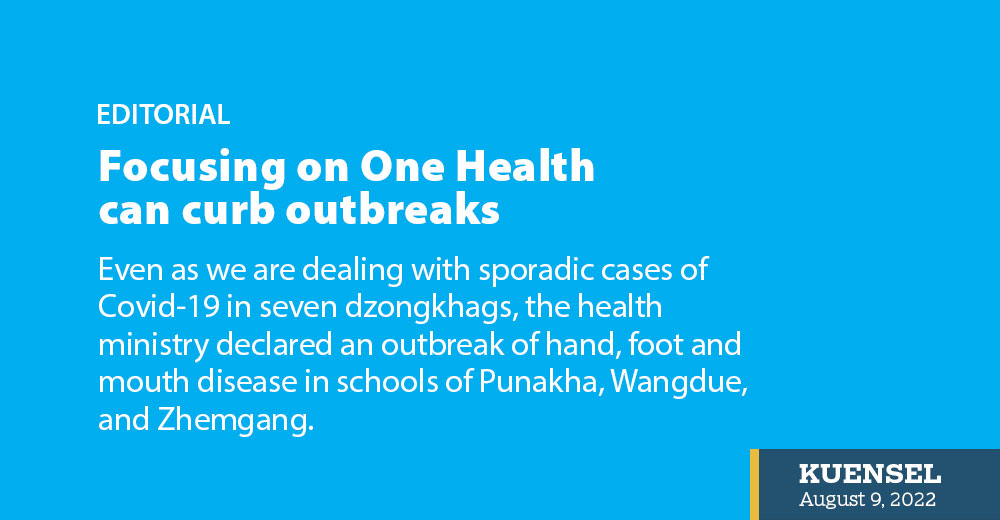Even as we are dealing with sporadic cases of Covid-19 in seven dzongkhags, the health ministry declared an outbreak of hand, foot and mouth disease in schools of Punakha, Wangdue, and Zhemgang.
The highly infectious disease has infected 47 school children in these dzongkhags.
Health officials are not sure as to when the cases were first diagnosed as they were reported at different times. Infected children are advised to stay home to prevent spread. Children below five years are the vulnerable population and the infection could be severe among people with comorbidities.
The disease, common among cattle, normally occurs around this time of the year and also recurs about every three years. A similar outbreak was reported in 11 dzongkhags in 2016. However, the number of cases in 2019 was low.
Children below five, especially males, with poor hygiene and high frequency of social contact, are at high risk. The infection starts with a mild fever and runny nose.
Children are advised to wash their hands frequently with soap and water, maintain hygiene and sanitation, wear face masks, avoid close contact, and avoid sharing cups or utensils with those infected.
The battle against Covid-19 to a certain extent has been used as an opportunity to meet our One Health targets. Despite the challenges, officials remain optimistic.
Almost 14 years after Bhutan joined the global One Health effort to avert zoonotic disease outbreaks, the Bhutan One Health secretariat office was launched at the Royal Centre for Disease Control (RCDC) in Thimphu.
One Health is an approach to prevent possible outbreaks of novel infectious diseases such as Covid-19, especially those with the zoonotic origin, diseases transmitted from animals to humans, through a multi-disciplinary collaboration.
However, the problem in most programmes that need multiple agencies to collaborate is the lack of collaboration between them.
Diseases are emerging and re-emerging mainly due to poor sanitation, close proximity of people to livestock, deforestation, porous borders, climate change, changes in human behaviour and unhygienic food preparation and consumption practices. If there is one lesson Covid-19 should have taught us is washing hands and ensuring safer spaces.
We need to reinforce this message. If we can devote even a fraction of the amount of advocacy that Covid-19 enjoyed to such diseases as hand, foot and mouth disease then we might not have to lose precious lives to preventable diseases.


